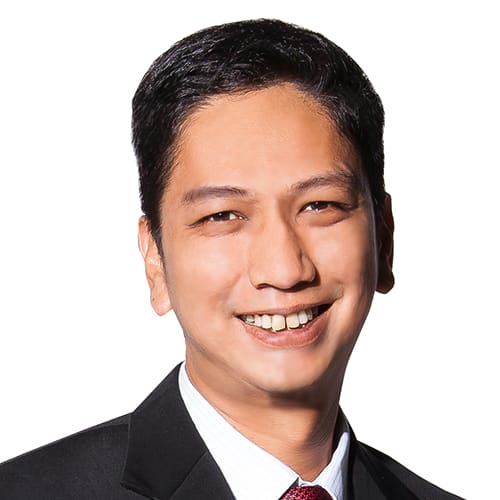Analysis: Scandals involving Indonesia's anti-corruption chief a test of Jokowi's commitment to fighting graft
Corruption Eradication Commission chief Firli Bahuri already had several ethical violation charges against him. With a possible extortion case hanging over his head, activists are questioning: How did he get the job and stay in it for so long?
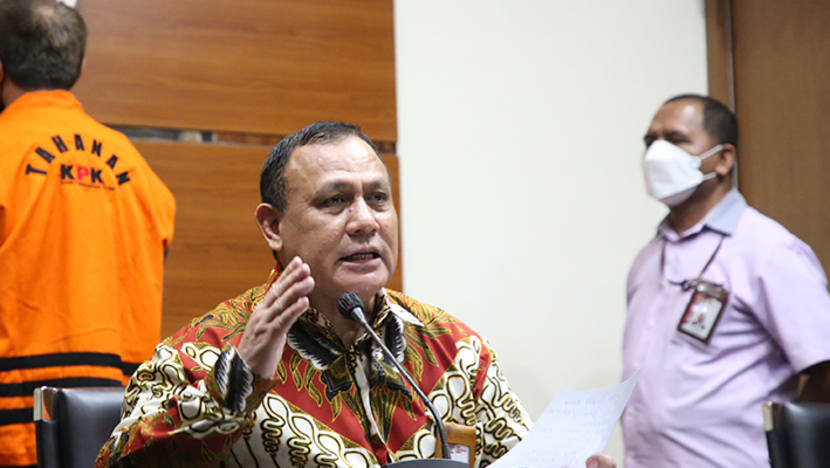
Indonesian Corruption Eradication Commission chief Firli Bahuri speaking during a press conference announcing the arrest of a corruption suspect, seen behind him, on May 24, 2022. (Photo: Indonesian Corruption Eradication Commission)

This audio is generated by an AI tool.
JAKARTA: The two-storey house in one of Jakarta’s most upscale neighbourhoods, Senopati, appeared deserted when CNA visited recently.
Its three-metre tall metal gates were padlocked while the blinds of its windows tightly shut. Aside from the rustling trees shading the minimalist-style house, there were hardly any signs of life.
The same house was on Oct 26 raided by police investigators in white, short-sleeve shirts and black trousers, escorted by heavily armed officers in bulletproof vests on top of Indonesian police’s distinctive grayish brown uniforms.
Police investigators were looking for evidence against the house’s tenant, chairman of the Corruption Eradication Commission (KPK), Mr Firli Bahuri.
He has been accused of extorting money from former agriculture minister Syahrul Yasin Limpo, as the latter was being investigated for a litany of bribery charges by the anti-corruption body.
The Jakarta Metro Police have not revealed what evidence they were able to collect from the Senopati home, as well as another house in the outskirts of Jakarta owned by the KPK chairman.
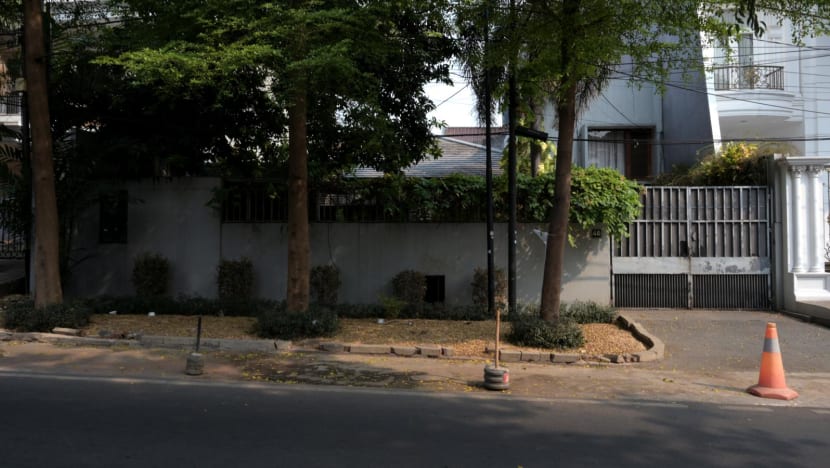
Mr Firli has not been formally charged, unlike Syahrul, but there is mounting pressure from activists and experts for police to do so.
“At the very least, Firli must resign from the KPK,” Mr Kurnia Ramadhana, a researcher from non-for-profit group Indonesia Corruption Watch, told CNA, adding that he feared Mr Firli might use his powerful position as KPK chairman to tamper with evidence or obstruct the ongoing police investigation.
Related:
Mr Abdul Fickar Hadjar, a law expert from Jakarta’s Trisakti University, said the debacle is a test of President Joko Widodo’s commitment to fighting corruption, since his administration is responsible for nominating and vetting Mr Firli into his current post in 2019.
“Firli is a problematic figure who shouldn’t be chairing the KPK in the first place,” Mr Hadjar told CNA highlighting that Mr Firli had on numerous occasions been found guilty of ethical and disciplinary violations before and during his time as KPK chairman.
“Jokowi must see to it that the KPK is only filled with competent and trustworthy people if he wants to be remembered as a president who is committed to fighting corruption,” the expert continued, referring to the president by his popular nickname.
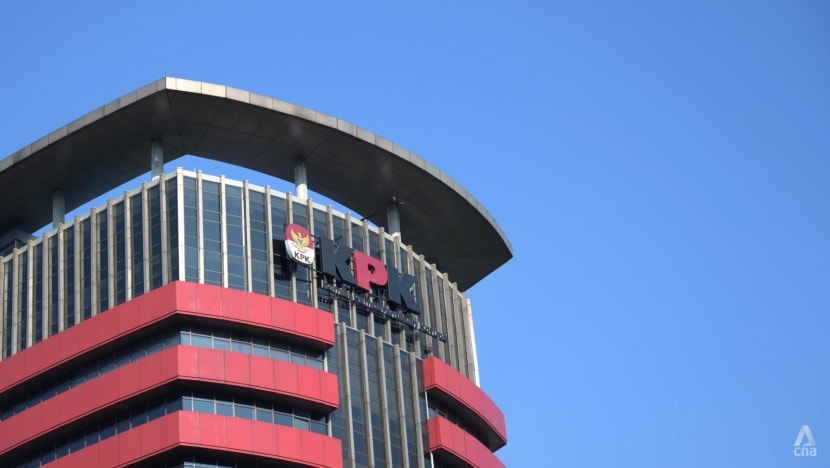
HOW IT ALL BEGAN
The KPK has been investigating Syahrul since 2020 when it began receiving tip offs from activists and people inside the ministry.
Syahrul was accused of extorting money from his high-ranking subordinates in exchange for promotion or keeping their coveted jobs.
KPK deputy chairman Johanis Tanak told a press conference on Oct 11 that each official was forced to provide between US$4,000 to US$10,000 to Syahrul and two other suspects every month from 2020 to this year.
But it would take some time before the KPK began building a case against Syahrul.
On Sep 29, officials from the KPK raided Syahrul’s house in another upscale area in Jakarta, Widya Chandra just as the then minister was traveling to Europe on an official visit.
Among the items confiscated from his house were a check amounting to two trillion rupiah (US$125.5 million), 12 handguns and 30 billion rupiah in cash.
Syahrul returned to Jakarta on Oct 4. The following day, Syahrul visited the Jakarta Police headquarters to lodge a complaint against the KPK chairman alleging that Mr Firli had tried to extort money from him.
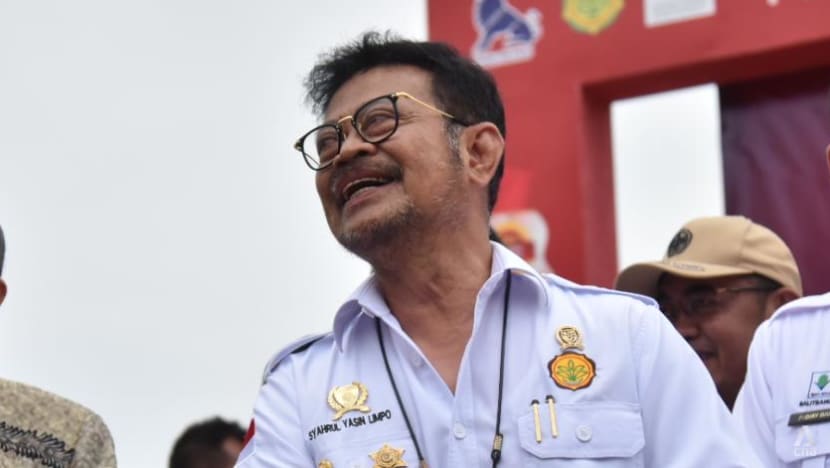
The KPK chairman denied the accusation. “I can assure you, we never had any contact with people (of interest), asking for something, let alone extort,” he told a press conference on Oct 5.
But a photo of him meeting Syahrul at a tennis court surfaced two days later.
Mr Firli admitted that he did have contact with Syahrul but maintained the two did not discuss the case. He also said that the meeting occurred in March 2022, before the KPK began building a case against the former minister.
Former KPK commissioner, Mr Saut Situmorang, said Mr Firli’s excuse was unacceptable.
“When a corruption complaint is lodged against someone, that person automatically becomes a person of interest. A KPK chairman should never meet a person of interest. Even if the meeting was a happenstance it should be reported to the other commissioners,” Mr Saut told CNA.
A CONTROVERSIAL FIGURE
This was not the first time Mr Firli got into trouble for meeting people of interests.
In 2018, when Mr Firli was the KPK’s deputy for enforcement, he was found guilty of violating the body’s ethics code for meeting with then-West Nusa Tenggara governor Muhammad Zainul Majdi, who was a witness to a corruption case at the time.
That same year, he was also found guilty of meeting another corruption case witness, then-deputy chairman of the Supreme Audit Agency Bahrullah Akbar just hours before he was scheduled to be questioned by KPK investigators.
As a result of his violations, the now-three star police general was ousted from the KPK and recalled to the police force.
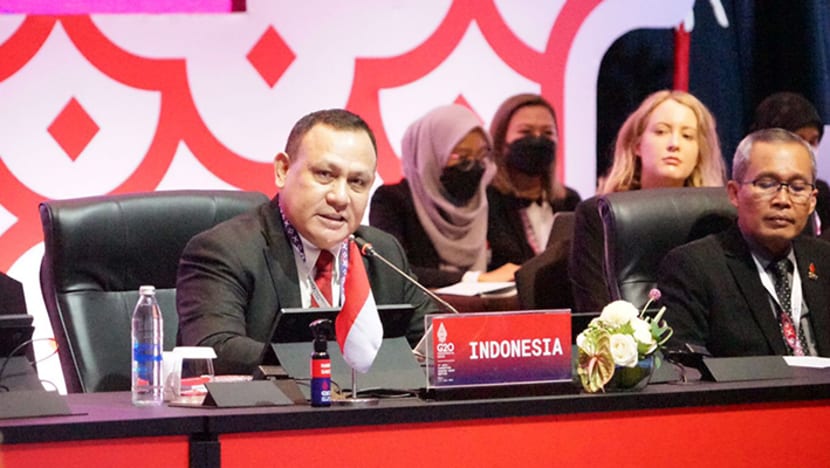
Which is why when a selection committee, sanctioned by Jokowi’s administration, nominated Mr Firli for a KPK commissioner position, activists were fuming.
“How can a man with such a bad record pass the vetting process? (Activists) tried to bring the selection committee’s attention to Firli’s past violations but they went ahead and nominated him anyway,” Mr Danang Widoyoko, secretary general of Transparency International Indonesia, told CNA.
Once he secured the KPK chairmanship, the list of ethical violations involving Mr Firli continued.
In 2020, he was reprimanded for accepting a helicopter ride from a businessman to make a personal trip. He would be investigated by the KPK supervisory committee four more times, the latest was for meeting Syahrul.
Mr Firli could be in trouble again, this time connected to the Jakarta house which police raided on Oct 26.
By law, senior government officials must declare all of their wealth and assets and the rented house was not in Mr Firli’s list of assets disclosed to the public.
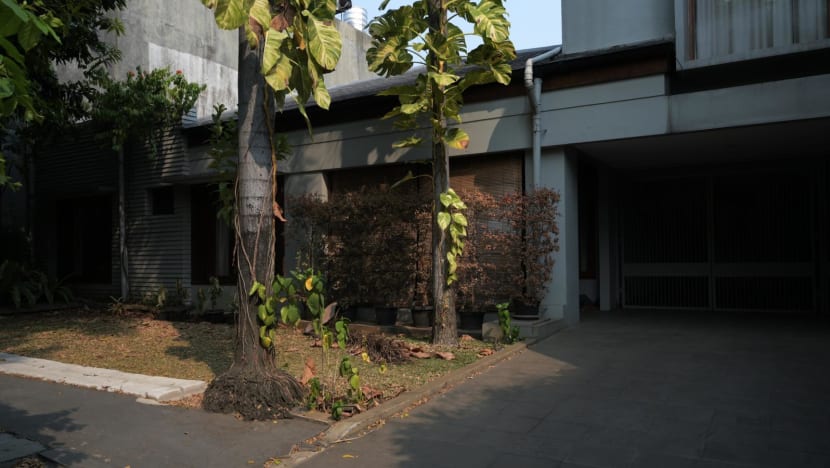
Senior police investigator, Mr Ade Safri Simanjuntak, said although used by Mr Firli, the house was leased under businessman Mr Alex Tirta’s name with a rent of 650 million rupiah a year.
Mr Firli’s lawyer, Mr Ian Iskandar, said his client used a broker and had no idea he was subleasing the house from Mr Alex, a controversial Indonesian businessman known for owning several nightclubs, hotels and massage parlours.
“Firli uses the house as his resting place,” the lawyer said, arguing that renting the house saves his client time as opposed to commuting to his personal home in the outskirts of Jakarta. Mr Ian also said his client only pays a rent of no more than 100 million rupiah a year.
Former KPK commissioner Mr Saut said police should open a separate investigation into how Mr Firli, who receives a monthly take-home pay of 123 million rupiah, was able to afford to rent the house.
“If Firli pays the full 650 million (rupiah) price to Alex Tirta, how can he do so with his salary? If Firli only pays 100 million (rupiah) then that’s illegal gratuity,” Mr Saut said.
In Indonesian law, illegal gratuity is defined as receiving gifts, favours or cash exceeding 300,000 rupiah from any party, regardless whether or not the public official accepting them returns the favour by committing a certain act or decision related to the official’s authority.
When the value of such gifts exceeds 10 million rupiah, the law considers them as bribes, and the offending public official can receive a maximum sentence of life in prison.
REFORMS NEEDED
Mr Danang said Mr Firli’s appointment shows there is something wrong with the way the Jokowi administration vets and nominates people for cabinet and other strategic posts.
“The selection process needs to be transparent and take into consideration inputs from the public and civil society organisations,” he said, adding that the Jokowi administration had so far done a bad job at vetting candidates for strategic government positions.
Syahrul is the sixth member of Jokowi’s cabinet to be charged with corruption, which is more than any other president in Indonesia’s history.
Four of the ministers have been convicted and were each sentenced to between three and 12 years in prison. The fifth, former Communications and Information Minister, Johnny Plate is now on trial.
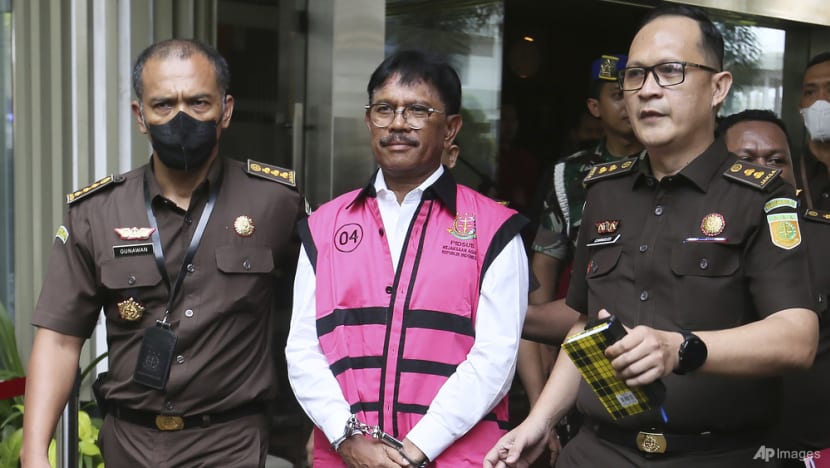
Another senior official charged with graft was Henri Alfiandi, the disgraced chief of the national search and rescue agency, a non cabinet position but is directly appointed by Jokowi.
His case is still being investigated by the military police, as Henri is an active Air Force general, and it has not moved to trial.
Mr Fickar of Trisakti University said Jokowi must take the selection process of strategic public posts seriously. Equally important is how these positions are monitored and supervised.
“In the case of the KPK, these supervisions must be double or triple the strictness compared to other institutions because the KPK is supposed to be a model of what a clean and transparent public institution in Indonesia should look like,” he said.
“The fact that a person like Firli can get away with so many ethical violations and misconduct for so long shows that there is something wrong with how KPK officials are monitored.”
The KPK is supposed to be scrutinised by a supervisory committee, all five members of which are also vetted and nominated by a presidentially appointed selection committee.
But Mr Kurnia of Indonesia Corruption Watch said the supervisory committee is moving too slowly and its sanctions too weak.
"Firli is a repeat offender and yet every time he was found guilty of violating the KPK's ethics code, he got no more than a written reprimand," he said.
The committee, Mr Kurnia added, should have been more firm towards Mr Firli, who kept snubbing orders to appear before the ethics tribunal, delaying the committee's investigation process.
"Firli met a person of interest who was the subject of corruption probe. That is a clear violation of the ethics code. What more (evidence) does (the committee) need?" he said.
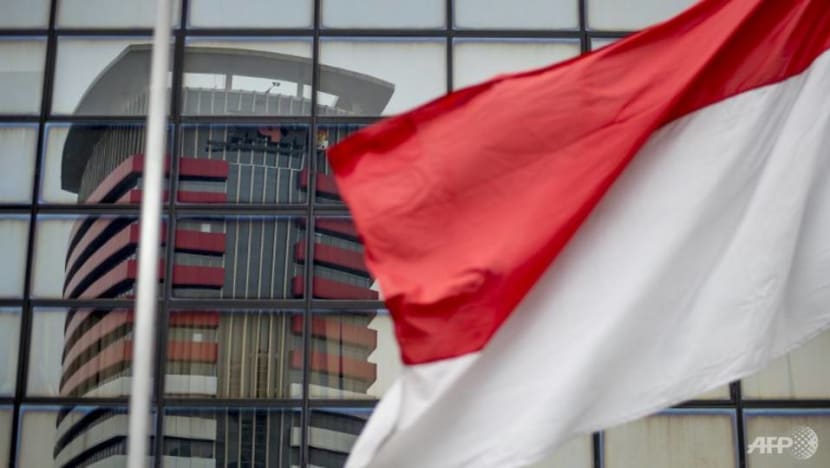
Mr Danang of Transparency International said the consequences of nominating a problematic figure to a strategic public position are serious.
In 2018, the country was ranked 85th out of 180 cleanest countries in the world by Transparency International. Indonesia received a score of 40 with 0 being highly corrupt and 100 being highly clean.
But after Mr Firli became KPK chairman Indonesia’s rankings appeared to be slipping every year
In 2022, Indonesia’s ranking dropped 25 spots to 110. Indonesia received a score of 34, the same mark given to the once war-torn countries of Sierra Leone and Bosnia-Herzegovina.
Last year, neighbouring country Singapore had a score of 83 while Malaysia and Timor Leste had a score of 47 and 42 respectively.
“It is important to ensure that the KPK is clean and trustworthy again, free from problematic people,” Mr Danang said. “Otherwise, it will be like trying to clean a house with a dirty broom.”








